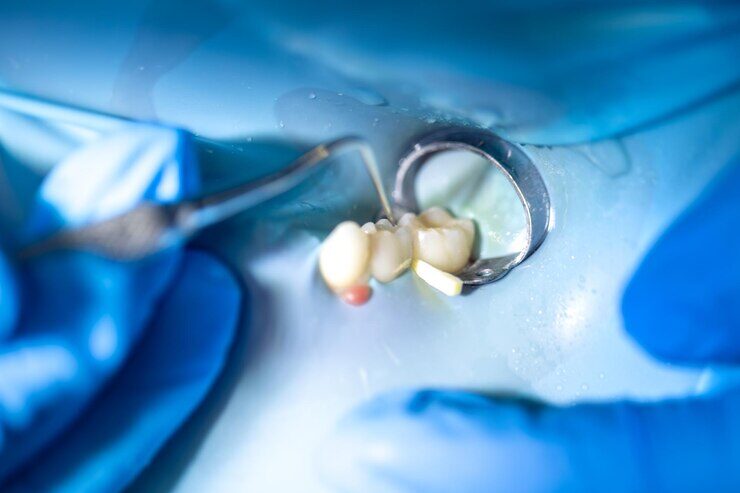
I. Introduction to Root Canal Treatment
Root canal treatment is a dental procedure that has been surrounded by misconceptions and fears. However, understanding the importance, benefits, and facts about root canal treatment can help alleviate any anxieties and ensure optimal oral health.
A. Understanding the Importance of Root Canal Treatment
Root canal treatment plays a crucial role in saving a tooth that is severely infected or damaged. It involves removing the infected dental pulp and saving the natural tooth, which is always the best option in terms of preserving oral health and function.
B. Common Conceptions about Root Canal Treatment
There are several misconceptions surrounding root canal treatment, causing many people to fear or avoid this necessary dental procedure. Contrary to popular belief, root canal treatments are not excessively painful, and advancements in dental technology have made the procedure comfortable and efficient.
C. Benefits of Root Canal Treatment
Root canal treatment offers numerous benefits, including:
- Alleviating pain and discomfort caused by dental pulp infection
- Preventing the spread of infection to surrounding teeth and gum tissue
- Restoring the natural appearance and function of the tooth
- Avoiding tooth extraction and the need for prosthetic replacements such as dental implants
- Promoting long-term oral health and preserving the natural tooth structure
II. The Anatomy of a Tooth

To better understand root canal treatment, it is essential to grasp the anatomy of a tooth and the role of dental pulp in maintaining tooth health.
A. Overview of Tooth Structure
A tooth consists of several layers, including the outermost enamel, dentin, and the innermost dental pulp. Enamel is the strong protective layer that covers the dentin, which forms the bulk of the tooth structure.
B. Role of Dental Pulp in Tooth Health
The dental pulp contains nerves, blood vessels, and connective tissue. It provides nourishment and sensory perception to the tooth. When the dental pulp becomes infected or damaged, prompt root canal treatment becomes necessary to preserve the tooth.
C. Causes and Symptoms of Dental Pulp Infection
Dental pulp infection can be caused by deep tooth decay, untreated cavities, dental trauma, or cracks in the tooth. Common symptoms include severe toothache, sensitivity to hot or cold, swelling, and tenderness around the affected tooth.
III. What is Root Canal Treatment?

Root canal treatment is a procedure designed to remove the infected dental pulp to save the tooth and promote oral health.
A. Definition and Purpose of Root Canal Treatment
Root canal treatment involves removing the infected dental pulp, cleaning and disinfecting the root canal system, and filling it with a biocompatible material. This seals the tooth, preventing further infection and promoting healing.
B. Step-by-Step Procedure of Root Canal Treatment
- Anesthesia: The dentist administers local anesthesia to ensure a painless procedure.
- Access and Removal: An access hole is created in the tooth to gain access to the infected pulp. The infected pulp is then carefully removed.
- Cleaning and Shaping: The root canal system is cleaned and shaped using specialized files to remove any remaining infected tissue.
- Disinfection: The root canal system is thoroughly disinfected to eliminate bacteria and prevent reinfection.
- Filling and Sealing: The root canal is filled with a biocompatible material called gutta-percha and sealed with dental cement.
- Restoration: A crown or filling is placed on the tooth to restore its strength and appearance.
C. Alternative Treatment Options
In some cases, alternative treatments to root canal treatment may be considered. However, it is important to consult with a dental professional to determine the most suitable solution. Alternatives may include tooth extraction followed by a dental implant, bridge, or partial denture. These options may involve higher costs, longer treatment timelines, and potential complications.
IV. Signs and Diagnosis of Dental Pulp Infection

Early diagnosis of dental pulp infection is crucial for successful root canal treatment. Recognizing the signs and symptoms and seeking prompt dental care is essential.
A. Identifying the Different Signs and Symptoms
Signs and symptoms of dental pulp infection include:
- Persistent and severe toothache
- Sensitivity to hot or cold
- Swelling and tenderness in the surrounding gum tissue
- Discoloration or darkening of the tooth
B. Importance of Early Diagnosis
Early diagnosis of dental pulp infection allows for timely intervention and a higher success rate for root canal treatment. Ignoring the symptoms may lead to further complications, such as abscess formation or the need for tooth extraction.
C. Tools Used for Diagnosis
Dental professionals use various tools to diagnose dental pulp infections, including:
- X-rays: To assess the tooth and root canal structure
- Pulp vitality tests: To determine the health status of the dental pulp
- Clinical examination: To evaluate the symptoms and assess the need for root canal treatment
V. Factors Influencing the Success of Root Canal Treatment

Several factors can affect the success rate of root canal treatment. Ensuring the quality of dental professionals, considering patient factors, and following proper post-treatment care are essential for optimal outcomes.
Why Choose DS Dental Care for Root Canal Treatment?

Expertise and Experience:
At DS Dental Care, our team of experienced and highly skilled endodontists specializes in providing top-notch root canal treatments. We take pride in our expertise and stay abreast of the latest advancements in endodontic care to ensure our patients receive the best possible treatment.
Patient-Centric Approach:
We understand that dental procedures can be intimidating, especially when it comes to root canal treatments. Our patient-centric approach focuses on providing a comfortable and stress-free environment. From the moment you walk through our doors, our friendly staff and compassionate dentists are here to guide you through the process and address any concerns you may have.
State-of-the-Art Technology:
DS Dental Care is equipped with cutting-edge dental technology, ensuring that our root canal treatments are precise, efficient, and minimally invasive. Our commitment to staying at the forefront of dental advancements enables us to deliver superior care to our patients.
Personalized Treatment Plans:
No two smiles are alike, and neither are dental conditions. Our team takes a personalized approach to root canal treatment, tailoring each plan to meet the unique needs of our patients. We conduct thorough examinations and consultations to develop a treatment strategy that prioritizes your oral health and well-being.
VII. Frequently Asked Questions about Root Canal Treatment
Here are answers to some commonly asked questions regarding root canal treatment:
A. How Long Does a Root Canal Treatment Take?
The duration of a root canal treatment depends on various factors, including the complexity of the case and the number of canals involved. On average, a root canal treatment can be completed in one to three appointments, with each appointment lasting approximately 60-90 minutes.
B. Does Root Canal Treatment Cause Pain?
With modern dental techniques and anesthesia, root canal treatments are typically painless. Patients may experience mild discomfort during the recovery period, but this can be managed with over-the-counter pain medications as recommended by the dentist.
C. Can Root Canal Treatment Fail?
While root canal treatment has a high success rate, there is a small chance of failure. Factors such as missed canals, re-infection, or insufficient restoration can contribute to treatment failure. Consulting with a dental professional and maintaining good oral hygiene greatly reduces the risk of failure.
VIII. Conclusion
Root canal treatment is a vital dental procedure aimed at saving severely infected or damaged teeth. Understanding the importance, benefits, and misconceptions surrounding root canal treatment can help individuals make informed decisions about their oral health.
Recapping the key points covered in this :
- Root canal treatment saves teeth and promotes long-term oral health.
- A dental pulp infection can cause severe pain and discomfort.
- Root canal treatment involves removing infected pulp, cleaning and disinfecting the root canal, and sealing the tooth.
- Early diagnosis and prompt treatment are crucial for successful outcomes.
- The success of root canal treatment depends on the expertise of dental professionals, patient factors, and post-treatment care.
- Dispelling myths and understanding the evidence-based benefits can alleviate fears associated with root canal treatment.









